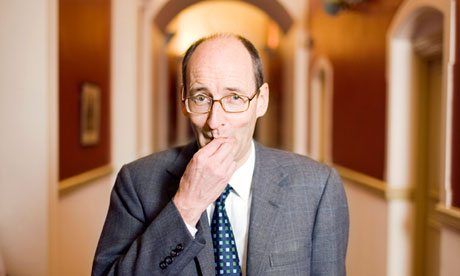Swiss bank UBS has reignited the row over bankers’ pay on Thursday by admitting that Andrea Orcel, the new head of its investment bank, stands to receive almost Sfr25m (£17.5m), a sum called “outrageous” by politicians in Switzerland.
The Italian banker is to be handed Sfr6.3m in cash and 1.7m shares – worth SFr18.5m – to buy him out of existing bonuses at his previous employer, Bank of America Merrill Lynch, where he was adviser on the ill-fated takeover of ABN Amro by Royal Bank of Scotland.
Orcel, who admitted to the British banking standards commission in January that banks had become “too arrogant, too self-convinced”, is said to have received a £7.5m fee for advising on the ABN Amro deal, which eventually led to the £45bn taxpayer bailout of RBS. In 2008, the year of that highly criticised deal, Orcel is said to have received a £21m bonus from Bank of America Merrill Lynch.
Parliamentarians on the commission had accused the Italian banker of being a “deal junkie” and dubbed him the “Ronaldo of banking” when he appeared and told them: “If we’d known what we know today, we would have advised them not to proceed [on buying ABN Amro]”.
Revelation of Orcel’s payout comes after outrage in Switzerland forced pharmaceutical company Novartis to scrap a payoff of Sfr72m for its former head Daniel Vasella, and a referendum this month returned an overwhelming vote to ban big payouts for new and departing managers.
David Roth, president of Switzerland’s Young Socialists, the junior wing of the Social Democratic party, said: “UBS is making massive losses, yet they are still paying SFr2.5bn in bonuses to bosses. We must stop the rewarding of failure.
“It is outrageous. Of course he [Orcel] should not have been given this money. If somebody who hasn’t done anything at all gets SFr25m people will be wondering why they bother to work at all.”
Bankers’ pay is also under scrutiny in the UK after Royal Bank of Scotland and Barclays together handed £1m or more to 523 bankers, prompting Simon Walker, director-general of the Institute of Directors, to describe pay at the banks as unacceptable.
Loss-making UBS stressed that the shares and cash being given to Orcel, who joined UBS in July, would be handed over in three instalments in 2013, 2014 and 2015, as “replacement awards” in lieu of payments he was due at Bank of America Merrill Lynch, which he left in March last year after 20 years with a reputation as an effective dealmaker. One of his longest-standing clients is Santander, which he advised during the ABN Amro takeover.
“In line with market practice he received awards as a replacement for deferred compensation and benefits forfeited by his previous employers as a result of joining UBS,” the bank said.
The disclosure of Orcel’s signing-on fee was in a 50-page compensation report from UBS, which has endured a turbulent two years during which it was fined £940m for rigging Libor and one of its traders, Kweku Adoboli, was jailed for fraudulent trading. Orcel was recruited by Sergio Ermotti, named as chief executive in the fallout from the Adoboli scandal, who was himself paid Sfr9m.
Ermotti originally hired Orcel as co-head of the investment bank but his co-head Carsten Kengeter has since left. Orcel warned 16,000 UBS investment banking staff in February that half of them would be paid no bonus for the year. The remuneration committee at UBS is led by Ann Godbehere, who was parachuted into Northern Rock at the time of its nationalisation but has now left.
With regards to Libor, UBS said that 26 employees had left before any action could be taken, 25 had their employment terminated and 27 had received sanctions in the form of withheld bonuses and promotions. The investment bank bonus pool was reduced by 50% and overall bonuses were down 7% at Sfr2.5bn. More than 300 individuals will have 10% lower bonuses than last year when they are paid this month. It said that 500 of its “key risk-takers” received SFr709m between them.


